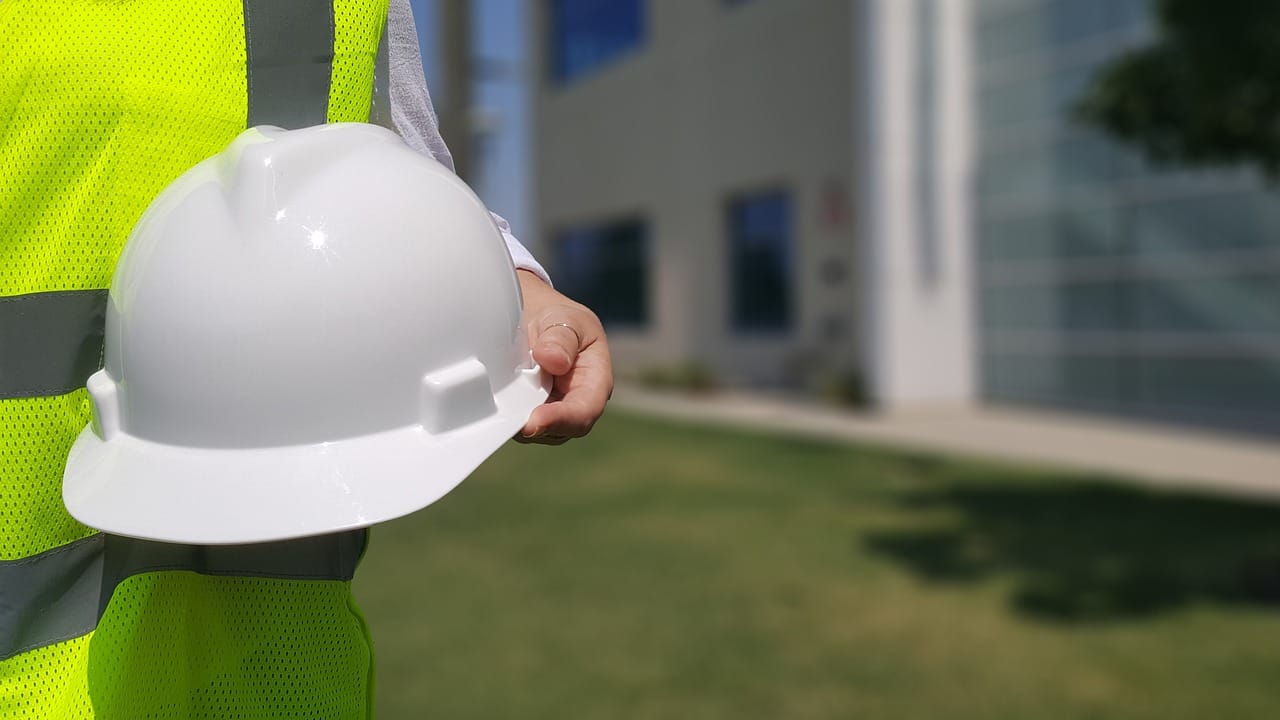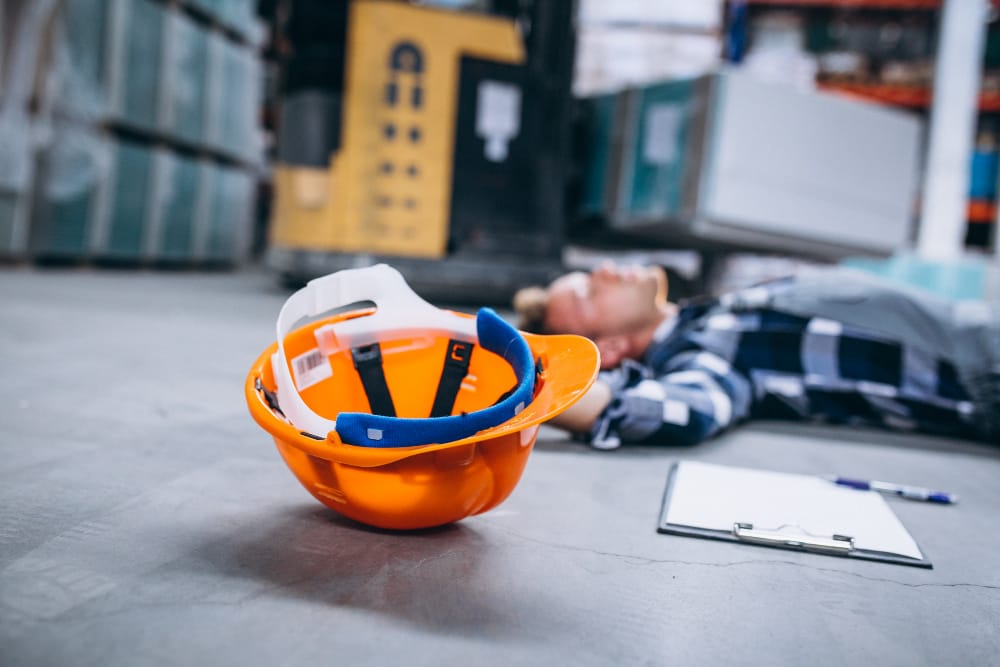When it comes to the realm of workplace safety, few topics are as critical and yet as often overlooked as the prevention and management of brain injuries in the workplace. Accidents can happen anytime, anywhere, and sometimes, they occur right where we spend most of our waking hours. Brain injuries are no exception to this reality. In the UK and beyond, it is imperative that employers, employees, and safety regulators prioritise this issue. But what exactly are brain injuries in the workplace, what can be done to prevent them, and what support systems exist for those who’ve suffered from such injuries? In this article, we’ll explore these questions, delve into workplace adjustments for brain injuries, discuss the vital steps to take if you or someone you know experiences a head injury at work, and provide information on making a serious injury claim with National Claims.
Understanding Brain Injuries in the Workplace
Before we dive into the specifics of dealing with brain injuries in the workplace, it’s crucial to have a firm understanding of what these injuries entail. A brain injury, also known as a traumatic brain injury (TBI), is typically caused by a sudden blow, jolt, or penetration to the head, which disrupts normal brain function. Such injuries can range from mild concussions to severe cases that can have life-altering consequences.
In a workplace context, brain injuries often result from accidents or incidents such as slips, trips, and falls, as well as objects falling from heights, vehicle accidents on work sites, or even violent altercations among employees. These injuries can be immediate, like a person slipping and hitting their head on a hard surface, or they can manifest over time, such as repetitive concussions in professions like American football.
Prioritising Workplace Safety
The key to addressing brain injuries in the workplace is prevention. This begins with employers taking proactive steps to minimise potential risks. In the UK, stringent health and safety regulations are in place to protect workers, and it’s vital that these are adhered to in order to maintain a safe working environment.
Risk Assessment
One of the first steps in safeguarding against brain injuries in the workplace is conducting a thorough risk assessment. This process involves identifying and evaluating potential hazards, as well as determining the likelihood of these risks resulting in accidents. Employers should consider factors such as the nature of the work, the type of machinery and equipment used, and the physical layout of the workspace.
Training and Education
Equipping employees with the knowledge and skills necessary to perform their jobs safely is paramount. Adequate training and education are essential to ensure that all workers understand the potential dangers they may encounter and how to avoid them. For instance, in high-risk environments, like construction sites, workers need to be well-versed in using safety equipment and adhering to established safety protocols.
Protective Gear
In some cases, providing personal protective equipment (PPE) can be an effective means of preventing brain injuries. This includes hard hats, helmets, and other gear designed to safeguard the head. Employers should not only supply the necessary PPE but also ensure that employees wear it consistently.
Workplace Adjustments
While preventing brain injuries is a primary goal, it’s equally important to address the situation should an injury occur. In the aftermath of a workplace head injury, several critical steps must be taken.
Workplace Adjustments for Brain Injuries
When an employee sustains a brain injury on the job, employers should be prepared to make necessary adjustments to facilitate their recovery and ensure they can continue to work safely. These adjustments can vary widely depending on the severity of the injury and the nature of the job, but here are some common measures that can be taken:
Medical Evaluation
The first step after a workplace head injury is to seek immediate medical attention. This is crucial for assessing the extent of the injury and determining the appropriate course of treatment. A medical evaluation will provide insights into whether the injury is mild, moderate, or severe and guide the subsequent steps.
Modified Work Duties
For employees with mild to moderate brain injuries, employers can consider modifying their work duties temporarily to minimise the risk of aggravating the injury. This may involve assigning less physically demanding tasks or providing additional breaks to prevent overexertion.
Workplace Accommodations
In more severe cases, where an employee has sustained a significant brain injury, workplace accommodations are essential. These might include adjusting work hours, providing a quieter or less stimulating work environment, and ensuring that the employee has access to necessary support services.
Rehabilitation
Rehabilitation plays a vital role in the recovery process for those with brain injuries. Depending on the injury’s severity, individuals may require physical, occupational, or cognitive therapy to regain lost skills or adapt to new ways of performing their job tasks. Employers should support and accommodate these rehabilitation needs.
Mental Health Support
A brain injury can have a profound impact on an individual’s mental health, leading to symptoms such as depression, anxiety, or cognitive changes. Employers should be sensitive to these issues and provide access to mental health support, such as counselling or therapy.
Ongoing Monitoring
Even after the initial recovery period, ongoing monitoring is crucial. Employers should stay in communication with the employee and their healthcare providers to ensure that they are progressing well and to address any emerging challenges promptly.
What to Do If You Get a Head Injury at Work
Sometimes, despite the best preventive measures, accidents happen, and head injuries occur in the workplace. If you find yourself or someone you know in this unfortunate situation, here’s a step-by-step guide on what to do:
Seek Immediate Medical Attention
The moment a head injury occurs, the top priority is seeking immediate medical attention. Do not dismiss even seemingly minor head injuries, as symptoms may not be immediately apparent. Only a medical evaluation can provide an accurate assessment of the injury’s severity.
Report the Injury to Your Employer
After receiving medical attention, it’s crucial to report the injury to your employer as soon as possible. This step is essential for initiating the process of workplace adjustments and securing necessary support.
Document the Incident
In conjunction with reporting the injury, it’s a good practice to document the incident, including the date, time, location, and a description of how the injury occurred. This documentation can be valuable for insurance claims and legal matters.
Follow Medical Advice
Comply with the recommendations provided by your healthcare provider. Whether it involves rest, rehabilitation, or specific work restrictions, following medical advice is essential for your recovery.
Stay in Communication
Maintain open communication with your employer regarding your progress and any ongoing challenges related to the injury. This ensures that they can make the necessary workplace adjustments and provide support accordingly.
Know Your Rights
In the UK, employees have legal rights and protections when it comes to workplace injuries, including brain injuries. Familiarise yourself with these rights and consult with legal counsel if necessary.
Making a Serious Injury Claim with National Claims
If you’ve suffered a serious brain injury in the workplace, you may be entitled to compensation and support. National Claims is here to guide you through the process of making a claim. Our experienced team understands the complexities of workplace injury cases and is dedicated to helping you receive the support and compensation you deserve.
Here’s how we can assist you in making a serious injury claim:
Initial Consultation
We begin with an initial consultation to understand the details of your case. Our experts will listen to your story, assess the circumstances of your injury, and provide an initial evaluation of your claim.
Legal Expertise
National Claims has a team of legal experts specialising in workplace injuries, including brain injuries. We will leverage our expertise to build a strong case on your behalf.
Claim Submission
We handle the entire claim submission process, ensuring that all necessary documentation and evidence are prepared accurately and efficiently.
Support Throughout the Process
Throughout the entire process, National Claims will provide ongoing support, answering your questions and addressing your concerns. We understand the emotional and physical toll that serious injuries can take, and we are here to alleviate the burden as much as possible.

Conclusion
Brain injuries in the workplace are a serious concern that demands our attention and proactive efforts to prevent and address them. Prioritising workplace safety, conducting risk assessments, and providing the necessary training and equipment are essential steps in preventing these injuries. Additionally, it’s crucial for employers to be prepared to make workplace adjustments when injuries do occur, ranging from mild concussions to severe traumas.
Seeking immediate medical attention, reporting the injury, and following medical advice are key steps to take if you experience a head injury at work. Survivors of brain injuries can find support from organisations like Headway UK, utilise NHS services, and benefit from legal protections in the UK.
If you’ve suffered a serious brain injury at work, National Claims is here to assist you in making a serious injury claim, guiding you through the legal process, and helping you receive the compensation and support you deserve. By being aware of these resources and the steps to take in case of a brain injury, we can work together to ensure a safer and more supportive workplace environment for everyone. In the end, the well-being of employees is not only an ethical obligation but also a strategic investment in a safer, more productive, and happier workforce.
Contact us today to start your claim and find out more about how we deal with brain injuries at National Claims.
Click below to see why we are one of the most trusted claims management companies in the UK.

We’re proud of our excellent customer reviews
We thrive on delivering exceptional service and ensuring our clients’ satisfaction. Don’t just take our word for it. Check out some of our independent reviews to see what our clients have to say.
Excellent

This firm is excellent, they sorted out my car pay out and injury claim very fast, they always communicate with you all the time.

My accident case was dealt with confidence and with great result of the outcome, especially James kept me informed all the time.

I was very impressed at the way my inquiry was treated. I was listened to attentively and everything I needed to know was explained to me.






